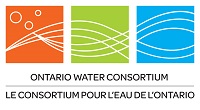Innovative companies and researchers in the wastewater and resource recovery sector are developing groundbreaking technologies aimed at providing solutions to wastewater treatment challenges, and they are interested in evaluating and demonstrating technology outside of the lab, in the real world.
Companies and researchers sometimes need a host location to demonstrate the effectiveness of new technologies. Even if such a partner can be identified, there may be significant cost in terms of time and resources invested in developing a partnership with a willing municipality and obtaining the appropriate environmental approvals.
As part of the Ontario government’s commitment to modernization of approvals, the Ministry of the Environment (MOE) is working to support the development new water services and technologies and to foster the continued growth of Ontario as a hub for water research, development and demonstration while continuing to uphold stringent requirements for environmental protection. The MOE has recently established an Innovations Branch and a Service Integration department within its Environmental Approvals branch, making it easier for companies to navigate the approvals process.
The MOE has worked closely with the Southern Ontario Water Consortium (SOWC) recently on two approvals to facilitate innovation. The MOE has approved amendments to existing Environmental Compliance Approvals (ECAs) for both the City of Guelph and the City of London to allow for the connection of SOWC research and development facilities to existing wastewater treatment facilities at each location. Both sites, being built in partnership with the host cities, will enable access to different streams of wastewater for testing treatment technologies in a real-world environment.
In the case of the smaller scale facility in Guelph, the testing facility is physically separate from the municipal plant but, because it provides a closed loop that sends the wastewater back into the plant, the MOE deemed that the facility itself did not need a separate ECA approval. The testing sites at the London Wastewater Facility are being built within an existing facility, and as a result, there is no new ECA required. Access to both facilities will save time and money for companies and researchers who will not be required to obtain an ECA.
Another example of a new approach is multi-site approval. This is an approval which is granted to the equipment provider which allows them to test specified technology at a user’s site under a permit held by the equipment provider, eliminating the need for the municipality to seek subsequent approval for the temporary and mobile demonstration on their site of the specified technology. The first example of this was recently granted to Trojan Technologies. This promises to expedite market development and access to providers of new technology while at the same time enabling potential end-users to trial new technologies with ease.
The MOE has demonstrated its commitment to innovative approaches in its supporting Ontario as a global destination for water innovation.

